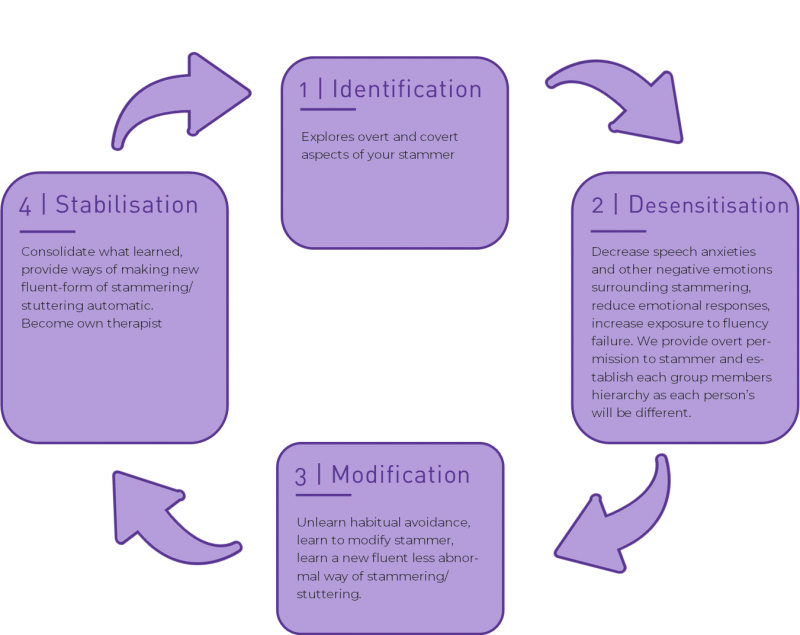“Stammer more Fluently” approach to Stammering
Stammer more Fluently approaches Originates from Van Riper’s teachings “that if you lose the fear of stammering you will stammer less”
A “Stammer More Fluently” approach teaches a person to learn to accept their stammer and to unravel and explore the difficult emotions surrounding this and bring the stammer out into the open, and then provides effective techniques to help manage the stammer.
Evidence suggests that it is effective in a group therapy environment as you can share the journey, its difficulties and face it together, explore emotions and find ways to move along together with support from a trained therapist. However, it can also be implemented in individual therapy effectively.
It teaches learning to identify overt and covert aspects of your stammer and empowers with Block modification techniques to help manage and stammer more freely.
There are four phases of therapy with this approach that we will work through over a block of therapy:

I really believe in this approach as it is about learning to accept your stammer and then using effective strategies to manage it.
Traditional approaches to stammering often used in childhood focus mostly on fluency
These can re-enforce thoughts and feelings that stammering is a bad thing and contribute to avoidance behaviours.
The Stammer More Fluently approach moves away from this ideology; also, it can help to produce a more natural speech.
This City Lit approach teaches “unconditional positive regard”. It is non-judgmental and uses non-judgmental language.
I was trained by City Lit, London in this stammering approach. It receives very positive feedback from clients who have been treated using this approach. I believe it is best taught in combination with counselling techniques such as: Solution focussed brief therapy, Empathy and Mindfulness.
If interested in individual therapy, a tailored treatment plan will be designed based on the initial assessment but likely 12 week blocks of therapy with a review.